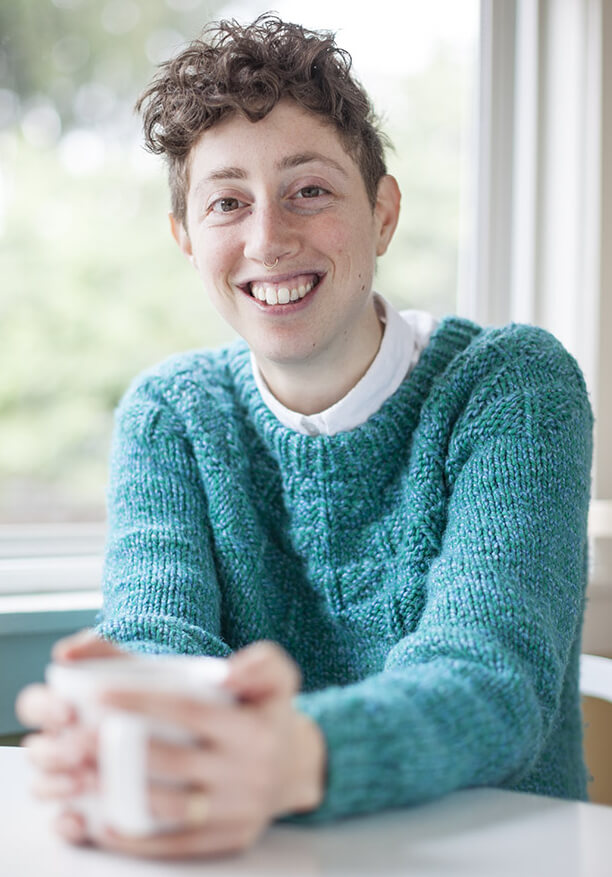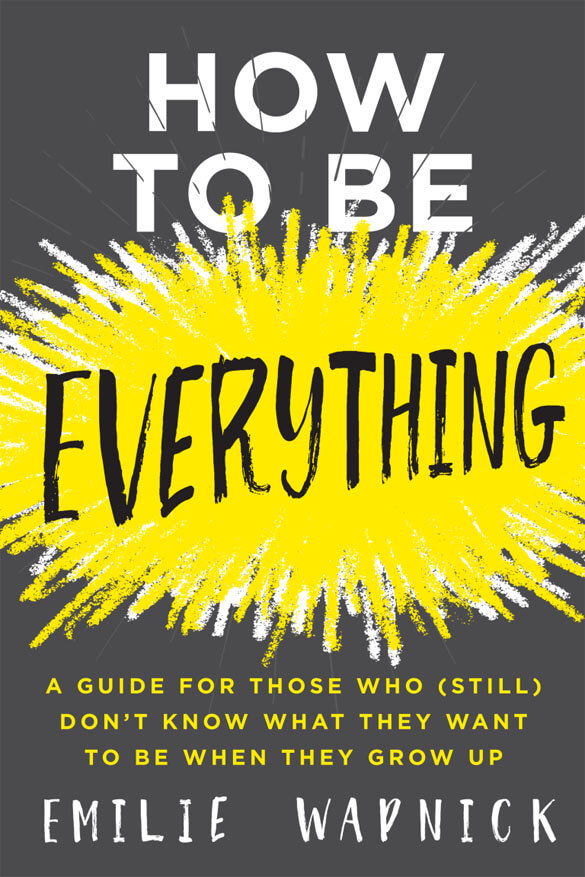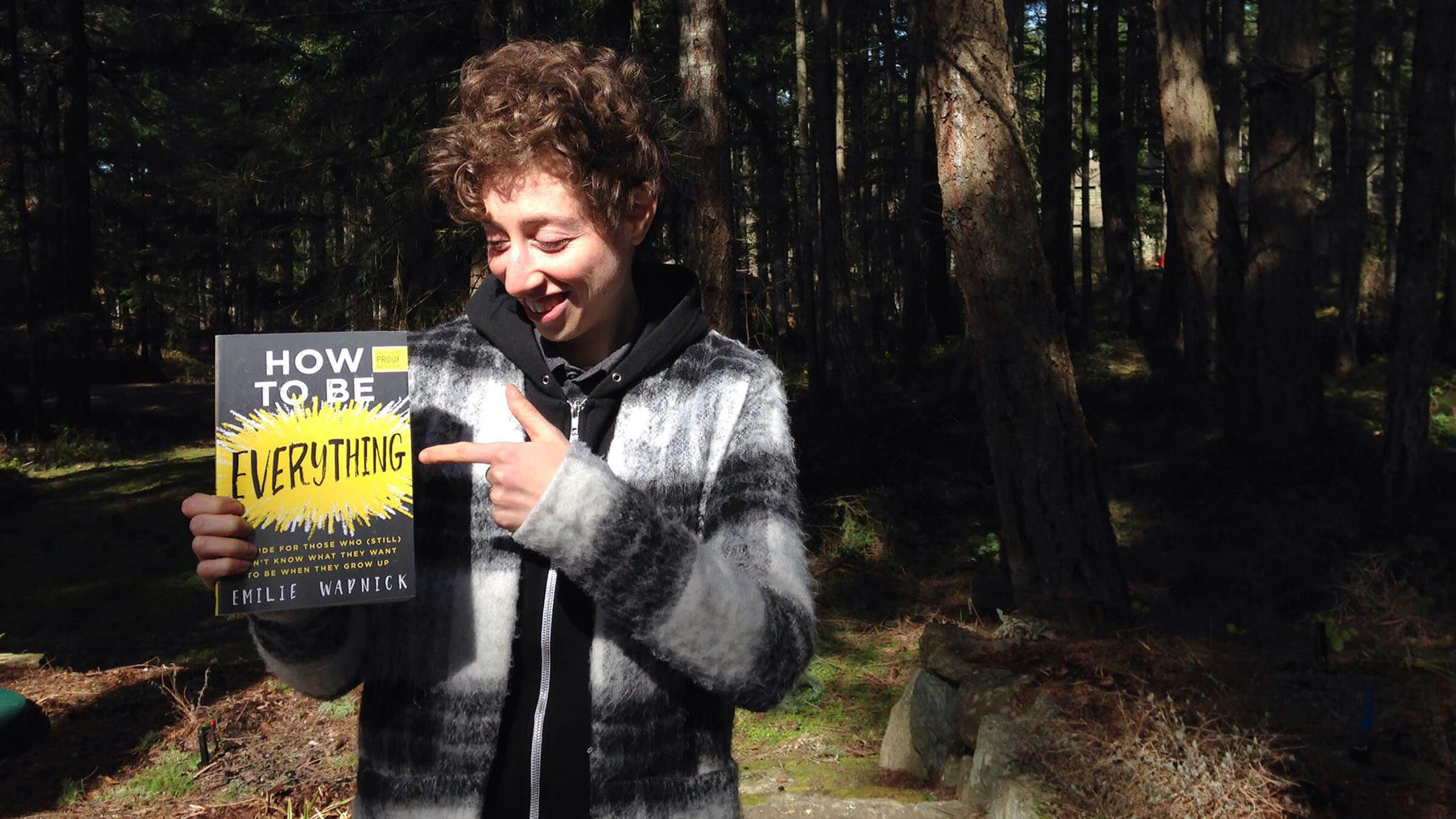For decades, “find your passion” has been the mantra when it comes to choosing a career. But what if you have multiple interests, and one profession feels too restrictive? Better yet, what if you don’t want to let your job title define who you are?
“I’m someone who has never been able to answer the question: ‘What do you want to be when you grow up?’” says American author Emilie Wapnick. In fact, she went through many career changes herself. From filmmaker to web designer, musician to lawyer, she started doubting her ability to commit. Why couldn’t she find “the one” profession? Why did she need to keep moving on to the next interest? A search for like-minded people led her to establish the online community Puttylike.com in 2010, bringing together so-called multipotentialites: “people with many interests and creative pursuits,” as she defines them.
Sure, this goes against everything you’ve ever learned about career development. But don’t let the cognitive dissonance affect your judgement: Wapnick presents dozens of cases of people who chose a holistic approach to their professions, all while making a living at it.
Ahead of her upcoming book, How to Be Everything: A Guide for Those Who (Still) Don’t Know What They Want to Be When They Grow Up, Wapnick talks about finding her own way to a satisfying life of multipotentialism – and how perhaps you can, too.
What made you start thinking that there was nothing wrong with having a more flexible career path?
Emilie Wapnick: A few factors came into play. I was graduating from law school, and I knew that I didn’t want to be a lawyer at this point. I became interested in the idea of working for myself, maybe starting a business, and I was reading books like Tim Ferriss’s The 4-Hour Workweek and Chris Guillebeau’s The Art of Non-Conformity, immersing myself in lifestyle design and entrepreneurship content and getting really excited about it.
At the same time, I started to realise that my pattern of diving into something, getting to be pretty good at it, then losing interest and moving to something else wasn’t going away. I fought it for so long, it caused me a lot of anxiety, and I decided “This is who I am, so why don’t I see if I can make it work?”. Instead of fighting it, I thought maybe there are other people out there who are already doing multiple things that I can learn from, maybe I can start a little community online of people who want to do many different things and also have that financial stability, and we can figure this out together. So I started blogging about it back in 2010, and I’ve learned a lot since then. I’ve been cultivating this community, and it has been kind of a wild ride.
I thought maybe there are other people out there who are already doing multiple things that I can learn from, maybe I can start a little community online of people who want to do many different things and also have that financial stability, and we can figure this out together.

In the past 10 years, you’ve worked as a filmmaker, web designer, speaker, teacher, writer… the list goes on. Did you each time believe that it was going to be the right path, “the one”?
That is the narrative that we grow up with; we are taught that everyone has that one thing that they’re meant to do or to be, their destiny. So each time I was like, “Yes, I’ve found my thing,” and then when I started to feel a little bit bored, or I wanted to try something new, I experienced a bit of an existential crisis.
The difference, now that I know I am a multipotentialite, is that when I embark on something new, I don’t go into it as I’ve found my one true calling. I’m rather aware that this is exciting right now, I am going to see where it goes and have some fun, but it doesn’t define me. And if I lose interest in it, that’s fine too; it fits with who I am.
Professions are often used to define a person, and viewing oneself as an *insert role* is often tied to one’s self-esteem. When did you stop caring how other people saw you?
I’m not sure if there was a moment like that or if it was just confidence that built over time. When people used to ask me, “So, what do you do?”, I would stammer and say “Oh I do this and that, and that other thing, but I am kind of moving into this other thing”.
As I’ve founded Puttylike.com, as I’ve been writing, speaking, coaching, I’ve just become more and more confident, happier. Now, when somebody asks me what I do, I might not have a better answer, but I express it with more confidence, and people want to know more. A lot of it is just feeling confident about what you’re doing – that comes across when you talk to other people, and then you stop caring so much what they think. Usually, if you’re having a lot of fun and making a living, you stop caring so much.
A lot of people lose faith when they change careers and it doesn’t work out. Very few do it again, many never even try. What would you tell these people?
It’s important to remember that multipotentialites define “finishing” differently from other people. Author Barbara Sher writes about this topic a lot; she calls them “Scanners”. She says that Scanners are finished when they’ve got what they came for. That might be in line with what the outside world sees as “success” or “finishing”, but it might not be. It could be something very personal or internal. Maybe for the outside world finishing means getting a degree or retiring, but Scanners get what they came for when they’ve mastered a certain skill, completed a certain project, or creatively expressed themselves, gotten to experience something – and that would be different from person to person.
When you move on because of that you haven’t failed, you’ve just reached your personal end point. So we need to be careful when talking about failing. I don’t think failing is losing interest, necessarily; I’m not sure how I would define it, maybe it would be not even trying in the first place. We also need to remember that we bring everything we learn to every new area we explore; many skills are transferable across disciplines. I found in my business that I’m constantly using skills I gained in totally different fields.
When I embark on something new, I don’t go into it as I’ve found my one true calling. I’m rather aware that this is exciting right now, I am going to see where it goes and have some fun, but it doesn’t define me. And if I lose interest in it, that’s fine too; it fits with who I am.

In your new book, you detail the obstacles to living a full multipotentialite life, like productivity and time management. Is there one technique that you’d recommend in particular?
Productivity is one of the biggest challenges for multipotentialites. A big question is: if I have multiple projects, how do I make progress on all of them? My favourite technique for this is making two lists: one list of one to four priority projects you’re actively working on or that you want to work on. Then another list – as long as you like – of all the other things: any cool business ideas, apps you want to develop, art projects, other career changes you’d like to make, things you’d like to try.
When you have some free time to work on a project, take a look at your priority projects, pick something, and work on it until you lose steam; you can then take a break and go back to it, or switch to another priority project. If at some point you feel you want to play with one or more of your interests on the other list, set a timer for 40 minutes – or however much time feels right – and then just go for it, have lots of fun and be unproductive. If you set a timer, you know it’s not going to take over your whole day, but it will give you a nice break from your main project, so you don’t start resenting it, because multipotentialites need variety in their lives to be happy.
On your blog, your book and your efforts as a whole, you fight against prejudices and old-fashioned ways of looking at careers and work-life balance. What did that teach you?
I’ve learned that things really aren’t the same as they used to be, in terms of how people make a living. We don’t really know where things are going, but I see people, such as percussionist Mark Powers, who instead of teaching and performing in a conventional sense, travels the world, teaches his students over Skype, does all of these really neat philanthropic projects, hosts TEDx events, runs workshops in schools, etc., which is amazing.
There are so many more opportunities now. You can work remotely. If you want to write a book, you can self-publish it and have a bestseller. You can put your music out into the world, record it yourself. You can fund a business or an invention through crowdsourcing – there are just so many opportunities, and technology is evolving so quickly. There are downsides to that as well, but I think this is a really good time for multipotentialites.
Wapnick’s upcoming book How to Be Everything: A Guide for Those Who (Still) Don’t Know What They Want to Be When They Grow Up (HarperOne) will be published on 2 May in the US and 15 June in the UK.
Article by Livia Formisani











Sorry, the comment form is closed at this time.